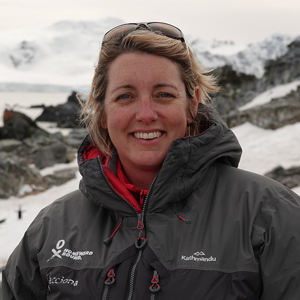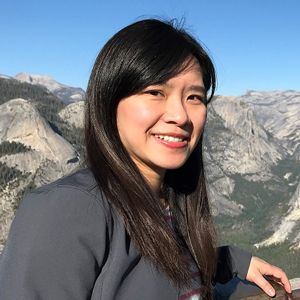






The 21st century has given rise to the Fourth Industrial Revolution – the fusion of digital, biological and physical worlds and our growing use of technology. At the same time the world is immersed in a biodiversity crisis with over 1 million species now under threat of extinction. Of the 15,500 animal species listed as threatened by the International Union for Conservation of Nature (IUCN), less than 1% have genomic resources.
In this webinar, Dr. Carolyn Hogg will discuss global genome initiatives which have been established to combat this and the genomic resources created for all eukaryotic life on earth. Although a reference genome does not conserve a species. Having the reference genome allows us to develop a suite of tools to understand both genome-wide and functional diversity within and between species. Conservation practitioners can then use these genetic resources to inform their decision-making. Currently, a gap in our applied knowledge exists between when genomes are produced, and the information that is used by conservation practitioners. In May 2020, Dr. Hogg and team launched the Threatened Species Initiative. Bringing together genome biologists, population biologists, bioinformaticians, population geneticists and ecologists with conservation agencies across Australia, including government, zoos and NGOs.
The objective is to not only create a foundation of genomic data to advance our understanding of key Australian threatened species but to ultimately empower conservation practitioners to leverage genomic information to tackle critical biological and conservation issues – including genetic data to inform translocations, captive breeding and their ongoing management. Developed in direct consultation with government threatened species managers and other conservation practitioners, Dr. Hogg will present the framework for meeting their needs and the systematic approach to integrating genomics into species recovery – using the Tasmanian devil, bilby and koala as our case studies.
Data analysis and management is often an area neglected when planning genome sequencing projects. In wildlife genomics, the diversity of genome profiles has made this even more challenging for researchers that come from non-computationally trained background. Here we present Illumina’s effort on making data analysis and management accessible for wildlife genome sequencing projects.
  |
Dr. Carolyn Hogg Senior Research Manager, Australasian Wildlife Genomics Group, The University of Sydney, AustraliaTalk: Conservation in the Age of Genomics Dr. Carolyn Hogg has been working on the conservation of threatened species for over twenty five years both in Australia and overseas. She is currently the Senior Research Manager for the Australasian Wildlife Genomics Group in the Faculty of Science. Dr. Hogg has been working with the Save the Tasmanian Devil Program for the past ten years; in addition to other species such as orange-bellied parrots, koalas, bilbies and woylies. Working closely with both her academic and conservation management partners, her vision is to create a conservation legacy for Australia by changing the way we integrate science, management and policy to proactively promote species’ resilience in the face of a changing world. Dr. Hogg and her team are achieving this by developing better tools and technologies to integrate molecular genetics into real-time conservation management decisions. |
  |
Zhiliang Chen Senior Bioinformatics Sales Specialist, IlluminaTalk: Illumina’s effort on data analysis and management for wildlife genomics Zhiliang holds a bachelor and a PhD in bioinformatics. During the years working with NGS data, she has extensive experience in different types of NGS data analysis. When she was a postdoctoral researcher at the University of New South Wales, she was involved in Koala Genome Consortium and assembled the koala genome. Zhiliang is currently a Bioinformatics Sales Specialist at Illumina. Her role includes providing pre-sales support of Illumina’s bioinformatics product to ANZ customers and non-human applications across Asia Pacific and Japan. |
Date:
17th August 2021, Tuesday – 12:00 – 13:15 (Singapore)
Link to register: Click here